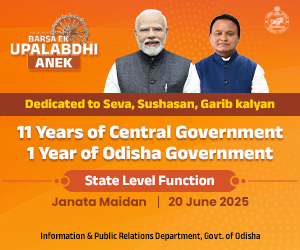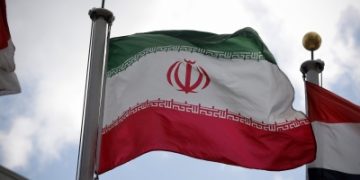Devinder Sharma
When people across the country are confined to their homes, the only pressing requirement they have is for food – and that too three times a day. Whether you are rich, sitting comfortably in your homes and trying out new recipes to prepare a fresh dish every other day or you are a poor migrant struggling to find a banana that you can still eat from the rotten heap lying on the banks of Yamuna river, food is after all a basic human necessity.
It is at this difficult time of a lockdown that the often repeated phrase — agriculture is the mainstay of the Indian economy – not only becomes obvious, but is firmly established.
But imagine the chaos if the country didn’t have enough food at these testing times? Imagine if we had followed the prescription of our mainline economists who had wanted food stocks limit to be reduced to feed only 20 per cent of our population? Imagine if we had dismantled the APMC mandis and done away with crop procurement as the industry had always wanted us to do? Even despite having a record foodgrain surplus – 77 million tonnes (at least three times more than the requirement) — still 96 per cent of the lakhs of migrants did not get their share of dry rations, says a study.
The avalanche of migrants heading back home after the lockdown was imposed, travelling on foot for hundreds of kilometres, without an assured supply of food, has provided a visual image to a monumental crisis that was building up for decades. The massive reverse migration, and subsequent efforts being made by the state governments to provide temporary shelter and food to those stuck on the way, has brought forth another hidden dimension of the ongoing agrarian crisis. Urban centres had failed to ‘absorb’ the migrant workforce, maintaining a clear-cut social distance from the migrants, and when the daily wage link was suddenly snapped, the teeming workforce felt abandoned.
A majority of these migrant workers are unlikely to return soon. The fact that they took the hard decision to tread back home to be with their families, where they wouldn’t be at least facing hunger, speaks volumes of the flawed economic thinking, which actually pushed people out of rural areas to migrate into cities because cities needed cheap labour. With farm prices kept low to keep food inflation under control, and at the same time provide cheaper raw material to the industry, agriculture was deliberately kept impoverished. Despite being denied their rightful income, farmers continued to produce a surplus for the country year after year.
The lockdown coincided with the rabi harvest. This year, despite unseasonal rains, production was expected to be bountiful. But with people asked to stay indoors, and with restaurants, hotels and dhabas pulling down shutters, the demand for perishable vegetables and fruits collapsed. Reports of farmers re-ploughing fields of cabbage, cauliflower, radish, peas and other vegetables poured in. Tomato farmers dumped the harvest in crop fields. Premier products such as strawberry had to be fed to cows. Button mushrooms rotted. The demand for premier Alphonso mangoes, grapes, banana and even plantation crops such as coffee, tea, cashew nuts and spices faced price crash. Poultry suffered the worst. Milk, fisheries and flowers were similarly badly hit.
Shortage of farm labour compounded the existing crisis. Even in the case of wheat, where a record 106 million tonnes of grain is to be harvested, paucity of farm workers has hit harvesting operations. Although the government has for all practical purposes kept agriculture, horticulture, plantation crops, fisheries and animal husbandry out of the lockdown provisions from April 20, procurement of wheat is slowly picking up. But interestingly, while it is agriculture that suffered a severe blow during lockdown 1.0, the impression being generated is that the rural areas are relatively better off.
This crisis apart, the bigger question is whether the pandemic will change the way we look at agriculture? Whether agriculture will receive priority in public policy? Or once the fire-fighting operations are over, it will be back to square one. While the State’s role in health and education is expected to expand, will agriculture also emerge on the top of dominant economic thinking? Will a relook at agriculture bring the focus back on making agriculture economically viable? These are questions that need to be seriously deliberated because the policy changes after COVID-19 will determine the future of agriculture.
The novel coronavirus pandemic, therefore, has come as a huge blow at a time when the dominant economic policies were aimed at propping up the industrial sector. Over the past few decades, agriculture had been systematically ignored in policy planning. The best reflection of this, perhaps, comes from the declining public sector investments in agriculture. Between 2011-12 and 2017-18, public sector investments in agriculture hovered around 0.3 and 0.4 per cent of the GDP for a sector that employs 50 per cent of the total workforce. It is futile to expect a miracle in agriculture without providing adequate investments, commiserating with the population involved.
With agriculture emerging as the strong pillar of the economy in these difficult times, it should be abundantly clear that any further effort to marginalise farming will be politically suicidal. While agriculture will need total revamp, and with huge investments, the challenge will be to provide farmers remunerative prices and assured monthly income. An OECD study has shown that Indian farmers lost `45 lakh crore between 2000 and 2016-17 as they were denied their rightful income. Imagine if `45-lakh crore (or `2.6 lakh crore every year) was paid to farmers, there would have been hardly any possibility of farmers abandoning agriculture and migrating to cities. Post COVID-19, let us aim at ‘Sabka Saath, Sabka Vikas’ and ‘Sabka Vishwas’. This is not wishful thinking. It is an idea whose time has come.
The writer is a food and trade policy analyst.







































